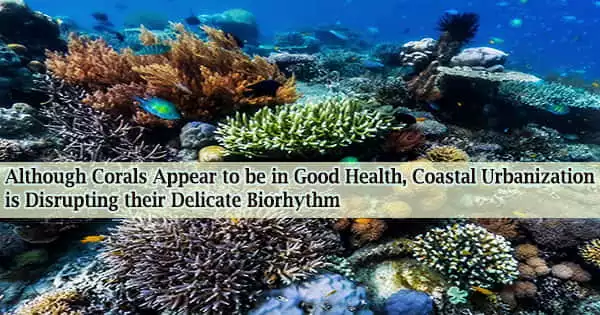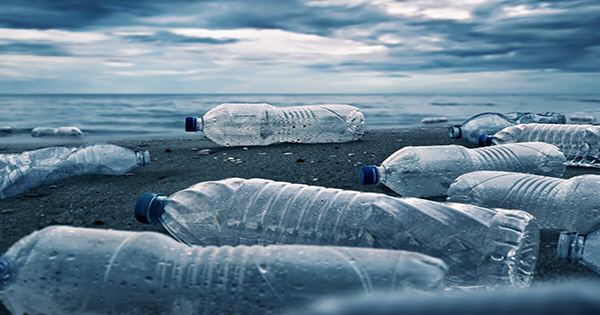Coral reefs in the Gulf of Eilat (also known as the Gulf of Aqaba) have been shown to be highly resistant to global warming, rising sea temperatures, and bleaching episodes, which are wreaking havoc on their counterparts throughout the world.
However, the findings of a long-term study published recently in the journal Global Change Biology by an international team of marine and data scientists confirm a different threat to this coral refuge in southern Israel: massive urban development near the Gulf coastline is wreaking havoc on the local marine environment.
Researchers spent a year examining how and if urbanization is disturbing natural biorhythms in corals, as well as whether urbanization is an underappreciated contributor to worldwide coral decline. Coral metabolism, development, and reproduction cycles are all governed by natural biorhythms.
Around the world, there are over 6,000 varieties of coral, with some flourishing in warm shallow waters near coasts and others surviving on the dark, cold bottom of the open ocean.
Dr. Yaeli Rosenberg with Prof. Oren Levy, Director of the Marine Lab at Bar-Ilan University’s Mina and Everard Goodman Faculty of Life Sciences, led the team, which included Dr. Shahar Alon (Bar-Ilan University Faculty of Engineering); Prof. Aldo Shemesh’s lab (Weizmann Institute of Science), the Bioinformatic Services Unit (University of Haifa), Prof. Chris Voolstra’s lab (University of Konstanz, Germany), and Prof. David Miller’s lab (ARC Centre of Excellence for James Cook University in Queensland, Australia).
Most large cities are located near the sea, with many in low-lying coastal zones, according to the “Oceans in Transformation” trajectory. Coastal zones have seen rapid urbanization in recent decades, making them particularly vulnerable to climate-related urban vulnerability.
Two locations in the Gulf of Eilat, at the northern tip of the Red Sea, were sampled, one near Eilat and the other further away. Eilat, like any other metropolis, releases a variety of chemical, light, hormonal, and noise pollutants that can impact marine ecosystems.
On the surface the corals seem healthy, but when looking deeper than the naked eye, we saw the strong effect of urbanization very conclusively.
Dr. Yaeli Rosenberg
The crew tested the reefs throughout the year at various times of day and moon phases, encompassing daily, monthly, and seasonal biological cycles. To figure out how urbanization affects biorhythm, researchers used a variety of methodologies, including RNA expression, physiological tests, stable isotope measurements, and microbiome analyses.
Despite the fact that the corals appeared to be in good health, the researchers revealed that natural biorhythms and environmental sensing systems were severely disrupted in corals residing near Eilat. The urban environment disrupted diel and lunar cycles associated to coral metabolism, predation, microbial functional diversity, and circadian clock activities.
The microbiomes of the urban coral population showed altered seasonality patterns, indicating that urbanization has an impact on the holobiont (the entire organism) rather than just the coral host.
“On the surface the corals seem healthy, but when looking deeper than the naked eye, we saw the strong effect of urbanization very conclusively,” says Rosenberg. “The disruption of the daily and monthly cycles resulted in lower physiological performances and reproduction cycles that disappeared in the urban corals,” adds Levy.
Corals in the non-urban site, on the other hand, appeared healthy, and their biorhythms cycled normally across the sample periods. Before municipal development decisions are made, scientists, according to Levy, must analyze the potential impact of urbanization on marine areas.
Levy is currently working on an evaluation of the global impact of light pollution on marine environments, as part of his research on biological cycles in marine creatures.
With evidence that urbanization is a factor in worldwide coral decline, he aims to investigate the effects of a combination of sensory pollutants (chemical, light pollution, hormone, and noise) on coral reefs to see what pollution levels they can tolerate.
This research was supported by a grant to Levy from the Israeli Science Foundation.
















